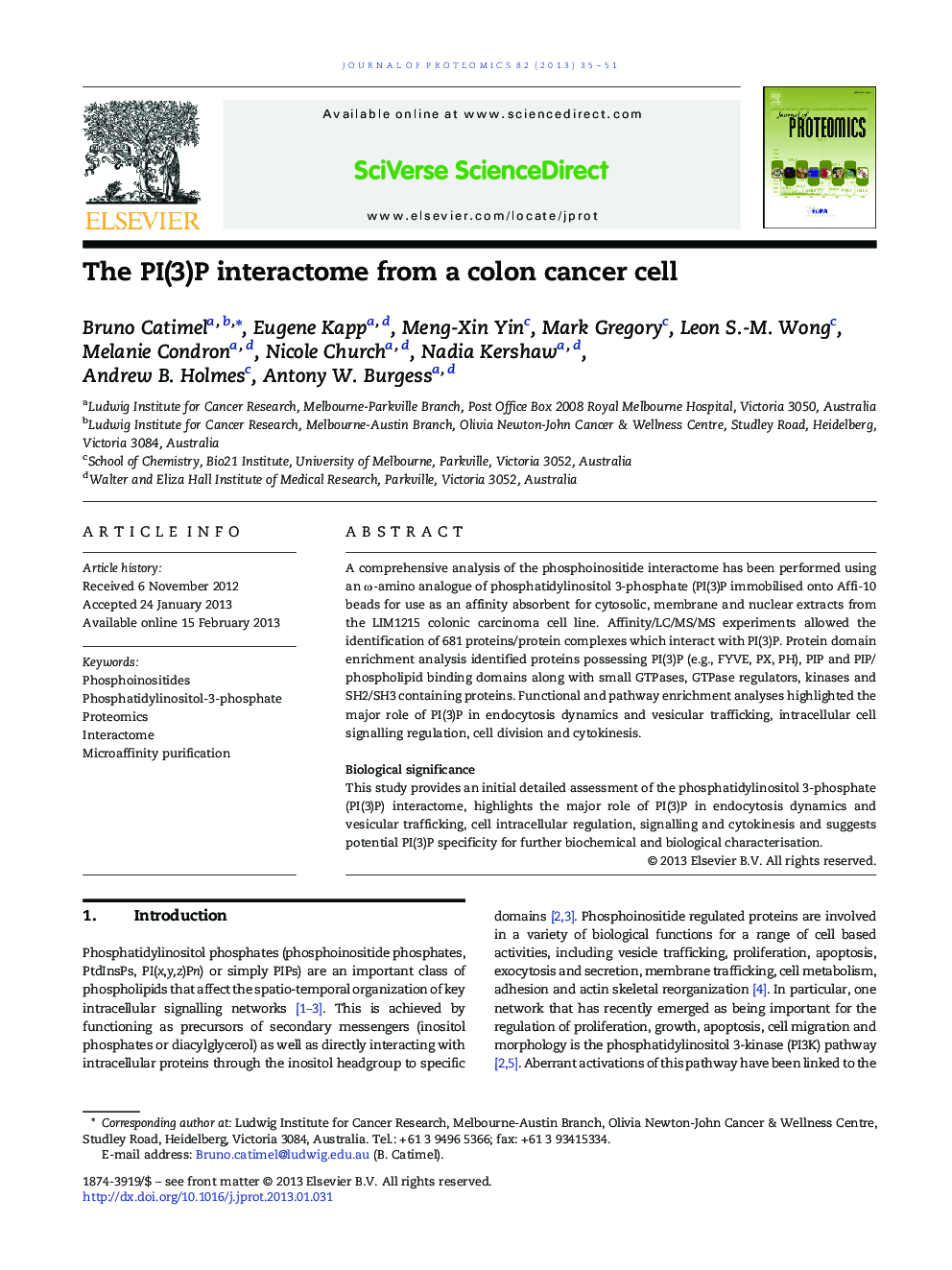| Article ID | Journal | Published Year | Pages | File Type |
|---|---|---|---|---|
| 1226177 | Journal of Proteomics | 2013 | 17 Pages |
A comprehensive analysis of the phosphoinositide interactome has been performed using an ω-amino analogue of phosphatidylinositol 3-phosphate (PI(3)P immobilised onto Affi-10 beads for use as an affinity absorbent for cytosolic, membrane and nuclear extracts from the LIM1215 colonic carcinoma cell line. Affinity/LC/MS/MS experiments allowed the identification of 681 proteins/protein complexes which interact with PI(3)P. Protein domain enrichment analysis identified proteins possessing PI(3)P (e.g., FYVE, PX, PH), PIP and PIP/phospholipid binding domains along with small GTPases, GTPase regulators, kinases and SH2/SH3 containing proteins. Functional and pathway enrichment analyses highlighted the major role of PI(3)P in endocytosis dynamics and vesicular trafficking, intracellular cell signalling regulation, cell division and cytokinesis.Biological significanceThis study provides an initial detailed assessment of the phosphatidylinositol 3-phosphate (PI(3)P) interactome, highlights the major role of PI(3)P in endocytosis dynamics and vesicular trafficking, cell intracellular regulation, signalling and cytokinesis and suggests potential PI(3)P specificity for further biochemical and biological characterisation.
Graphical abstractFigure optionsDownload full-size imageDownload high-quality image (54 K)Download as PowerPoint slideHighlights► An amino analogue of PI(3)P was synthesized and immobilised onto Affi-10 beads. ► A proteomic analysis of PI(3)P proteome using affinity/LC/MS/MS was performed. ► 681 PI(3)P interacting proteins were identified from colonic carcinoma cells. ► Enrichment analysis identified proteins having phosphoinositide binding domains. ► Functional and pathway enrichment analyses highlighted PI(3)P cellular processes.
